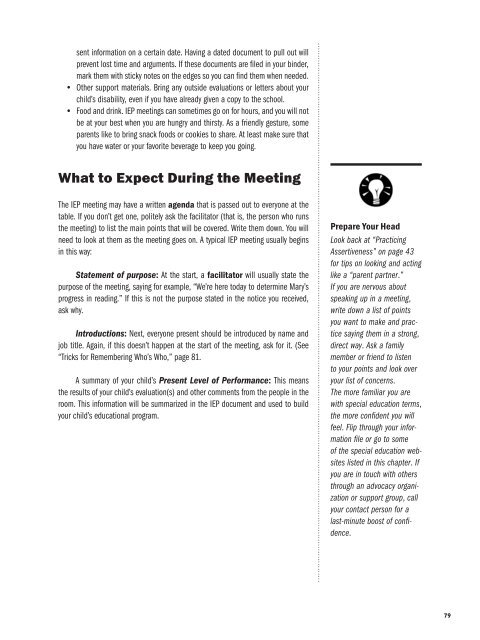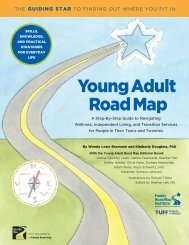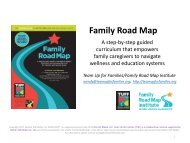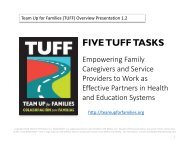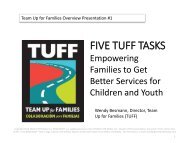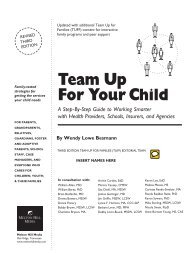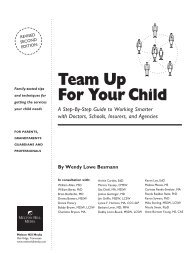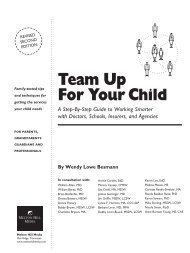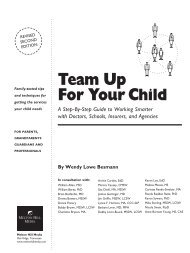Family Road Map Guide
You also want an ePaper? Increase the reach of your titles
YUMPU automatically turns print PDFs into web optimized ePapers that Google loves.
sent information on a certain date. Having a dated document to pull out will<br />
prevent lost time and arguments. If these documents are filed in your binder,<br />
mark them with sticky notes on the edges so you can find them when needed.<br />
• Other support materials. Bring any outside evaluations or letters about your<br />
child’s disability, even if you have already given a copy to the school.<br />
• Food and drink. IEP meetings can sometimes go on for hours, and you will not<br />
be at your best when you are hungry and thirsty. As a friendly gesture, some<br />
parents like to bring snack foods or cookies to share. At least make sure that<br />
you have water or your favorite beverage to keep you going.<br />
What to Expect During the Meeting<br />
The IEP meeting may have a written agenda that is passed out to everyone at the<br />
table. If you don’t get one, politely ask the facilitator (that is, the person who runs<br />
the meeting) to list the main points that will be covered. Write them down. You will<br />
need to look at them as the meeting goes on. A typical IEP meeting usually begins<br />
in this way:<br />
Statement of purpose: At the start, a facilitator will usually state the<br />
purpose of the meeting, saying for example, “We’re here today to determine Mary’s<br />
progress in reading.” If this is not the purpose stated in the notice you received,<br />
ask why.<br />
Introductions: Next, everyone present should be introduced by name and<br />
job title. Again, if this doesn’t happen at the start of the meeting, ask for it. (See<br />
“Tricks for Remembering Who’s Who,” page 81.<br />
A summary of your child’s Present Level of Performance: This means<br />
the results of your child’s evaluation(s) and other comments from the people in the<br />
room. This information will be summarized in the IEP document and used to build<br />
your child’s educational program.<br />
Prepare Your Head<br />
Look back at “Practicing<br />
Assertiveness” on page 43<br />
for tips on looking and acting<br />
like a “parent partner.”<br />
If you are nervous about<br />
speaking up in a meeting,<br />
write down a list of points<br />
you want to make and practice<br />
saying them in a strong,<br />
direct way. Ask a family<br />
member or friend to listen<br />
to your points and look over<br />
your list of concerns.<br />
The more familiar you are<br />
with special education terms,<br />
the more confident you will<br />
feel. Flip through your information<br />
file or go to some<br />
of the special education websites<br />
listed in this chapter. If<br />
you are in touch with others<br />
through an advocacy organization<br />
or support group, call<br />
your contact person for a<br />
last-minute boost of confidence.<br />
79


